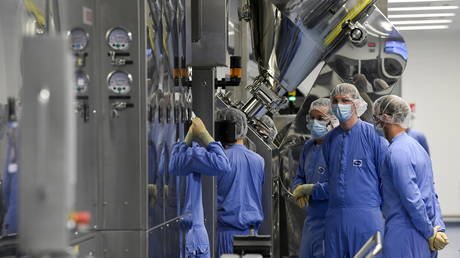
The pharmaceutical industry must provide widespread access to clinical data for new medicines and vaccines, the World Health Organization (WHO) and the International Coalition of Medicines Regulatory Authorities (ICMRA) have said.
“The Covid-19 pandemic has revealed how essential to public trust access to data is,” the organizations said in a joint statement on Friday.
“ICMRA and WHO call on the pharmaceutical industry to commit, within short timelines, and without waiting for legal changes, to provide voluntary unrestricted access to trial results data.”
The organizations said that both positive and negative clinical trial data should be published, without the redaction of confidential information due to the “overriding public health interest” in the fuller information.
The ICMRA and WHO also say greater transparency will help avoid “wrong regulatory decisions,” which may affect patients receiving medicines.
“Lack of public access to negative trials has been identified as a source of bias, which weakens the conclusions of systematic reviews and provides a false sense of reassurance on the safety or efficacy of the medicine,” the statement adds.
The comments came just one day after the WHO backed the decision by US President Joe Biden’s administration this week to temporarily waive patent protections for coronavirus vaccines.
The move, which has angered some drug companies, was described by WHO Director-General Tedros Adhanom Ghebreyesus as a “monumental moment in the fight against Covid-19.”
Supporters of the plans claim that greater transparency by pharmaceutical companies will boost vaccine production, which will help increase the flow of jabs to countries like India that are currently experiencing Covid-19 surges.
Critics of the proposals, meanwhile, have countered that a waiver on intellectual property for vaccines may take years and will not necessarily make jabs more available to areas that most require them or poorer nations.
Like this story? Share it with a friend!




